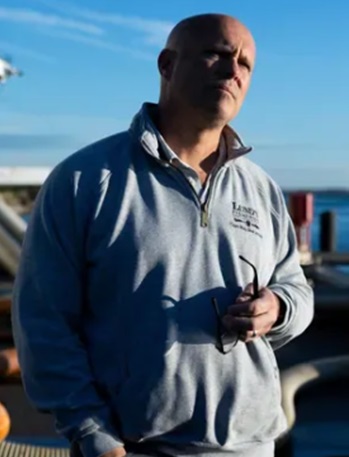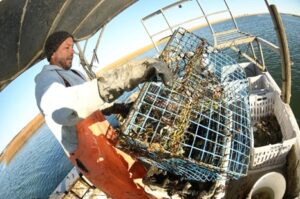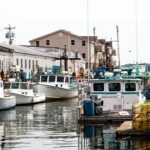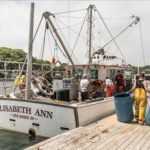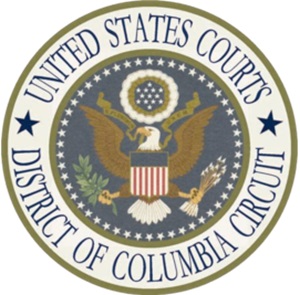 A U.S. appeals court on Monday appeared open to upholding a federal rule requiring commercial fishermen to fund a program to monitor for overfishing of herring off New England’s coast even after the U.S. Supreme Court in that same case issued a landmark ruling curbing agencies’ regulatory power. A three-judge panel of the U.S. Court of Appeals for the District of Columbia Circuit, during oral arguments, weighed the impact of the U.S. Supreme Court’s June decision, opens new tab to scrap a 40-year-old legal doctrine that had required courts to defer to agencies’ interpretations of ambiguous laws they administer. The 6-3 conservative majority U.S. Supreme Court nixed the doctrine, known as “Chevron deference,” after taking up an appeal by several commercial fishing companies of the D.C. Circuit panel’s 2-1 ruling in August 2022, opens new tab that had relied on the doctrine to uphold the fishing rule. more, >>CLICK TO READ<< 07:03
A U.S. appeals court on Monday appeared open to upholding a federal rule requiring commercial fishermen to fund a program to monitor for overfishing of herring off New England’s coast even after the U.S. Supreme Court in that same case issued a landmark ruling curbing agencies’ regulatory power. A three-judge panel of the U.S. Court of Appeals for the District of Columbia Circuit, during oral arguments, weighed the impact of the U.S. Supreme Court’s June decision, opens new tab to scrap a 40-year-old legal doctrine that had required courts to defer to agencies’ interpretations of ambiguous laws they administer. The 6-3 conservative majority U.S. Supreme Court nixed the doctrine, known as “Chevron deference,” after taking up an appeal by several commercial fishing companies of the D.C. Circuit panel’s 2-1 ruling in August 2022, opens new tab that had relied on the doctrine to uphold the fishing rule. more, >>CLICK TO READ<< 07:03Tag Archives: Congress

Waste of the Day: Over $1 Billion for Foreign Shrimp
The U.S. contributed to over $1 billion spent promoting shrimp farming in foreign countries from 1998 to 2023, which members of Congress say may have violated a federal law protecting American industries from overseas competition. The money came from various United Nations agencies that the U.S. helps fund, including the Food and Agriculture Organization and the International Finance Corporation, according to the Southern Shrimp Alliance, an advocacy group representing American fishermen. More than $500 million went to companies in Ecuador. The Philippines, China, India and Indonesia each received more than $100 million. Peru, Mexico, Belize and other nations in Latin America and Southeast Asia received funds as well. more, >>CLICK TO READ<< 13:49
Sleeping with the fishes: It’s time to resurrect accountability in U.S. fishery regulation
 If you’re expected to comply with hundreds of federal rules and regulations that affect your livelihood, wouldn’t you like to know that those rules come from people accountable to you in some way? That’s how our laws are made, after all. They come from Congress, which is accountable to the people through the democratic process. Yet much of what we call federal law comes in the form of rules that are not written by Congress but by unelected bureaucrats in hundreds of federal agencies. To make sure even bureaucrats are accountable, the Constitution usually requires them to be appointed by the president, with Senate confirmation if they have significant authority, like the power to issue rules with the force of law. Unfortunately, Congress often side-steps the Constitution by giving the job of appointing certain officers to someone else. A good example is the regulation of marine fisheries. more, >>CLICK TO READ<< 10:40
If you’re expected to comply with hundreds of federal rules and regulations that affect your livelihood, wouldn’t you like to know that those rules come from people accountable to you in some way? That’s how our laws are made, after all. They come from Congress, which is accountable to the people through the democratic process. Yet much of what we call federal law comes in the form of rules that are not written by Congress but by unelected bureaucrats in hundreds of federal agencies. To make sure even bureaucrats are accountable, the Constitution usually requires them to be appointed by the president, with Senate confirmation if they have significant authority, like the power to issue rules with the force of law. Unfortunately, Congress often side-steps the Constitution by giving the job of appointing certain officers to someone else. A good example is the regulation of marine fisheries. more, >>CLICK TO READ<< 10:40
First Circuit likely to save the whales despite lobstermen’s complaints
 An epic sea battle unfolded at the First Circuit Tuesday as Massachusetts fishermen tried to harpoon federal regulations that protect the North Atlantic right whale. But it appeared the judges were on the whales’ side and, as in “Moby Dick,” the fishermen may end up shipwrecked. At issue is a federal rule that limits lobster and Jonah crab fisheries’ use of buoy lines, which can entangle and kill whales. The fishermen’s lawyer, Daniel Cragg, told the judges that the rule resulted from Congress making a “drafting failure,” but the judges seemed incredulous. more, >>CLICK TO READ<< 10:52
An epic sea battle unfolded at the First Circuit Tuesday as Massachusetts fishermen tried to harpoon federal regulations that protect the North Atlantic right whale. But it appeared the judges were on the whales’ side and, as in “Moby Dick,” the fishermen may end up shipwrecked. At issue is a federal rule that limits lobster and Jonah crab fisheries’ use of buoy lines, which can entangle and kill whales. The fishermen’s lawyer, Daniel Cragg, told the judges that the rule resulted from Congress making a “drafting failure,” but the judges seemed incredulous. more, >>CLICK TO READ<< 10:52
Court open to upholding US fishing monitor rule even without ‘Chevron’ doctrine
 A U.S. appeals court on Monday appeared open to upholding a federal rule requiring commercial fishermen to fund a program to monitor for overfishing of herring off New England’s coast even after the U.S. Supreme Court in that same case issued a landmark ruling curbing agencies’ regulatory power. A three-judge panel of the U.S. Court of Appeals for the District of Columbia Circuit, during oral arguments, weighed the impact of the U.S. Supreme Court’s June decision, opens new tab to scrap a 40-year-old legal doctrine that had required courts to defer to agencies’ interpretations of ambiguous laws they administer. The 6-3 conservative majority U.S. Supreme Court nixed the doctrine, known as “Chevron deference,” after taking up an appeal by several commercial fishing companies of the D.C. Circuit panel’s 2-1 ruling in August 2022, opens new tab that had relied on the doctrine to uphold the fishing rule. more, >>CLICK TO READ<< 07:03
A U.S. appeals court on Monday appeared open to upholding a federal rule requiring commercial fishermen to fund a program to monitor for overfishing of herring off New England’s coast even after the U.S. Supreme Court in that same case issued a landmark ruling curbing agencies’ regulatory power. A three-judge panel of the U.S. Court of Appeals for the District of Columbia Circuit, during oral arguments, weighed the impact of the U.S. Supreme Court’s June decision, opens new tab to scrap a 40-year-old legal doctrine that had required courts to defer to agencies’ interpretations of ambiguous laws they administer. The 6-3 conservative majority U.S. Supreme Court nixed the doctrine, known as “Chevron deference,” after taking up an appeal by several commercial fishing companies of the D.C. Circuit panel’s 2-1 ruling in August 2022, opens new tab that had relied on the doctrine to uphold the fishing rule. more, >>CLICK TO READ<< 07:03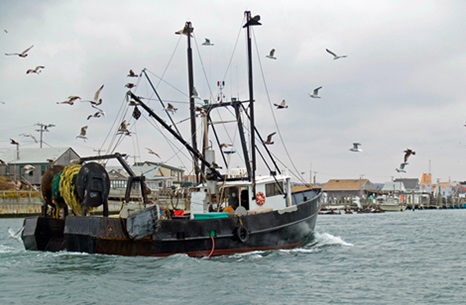
OPINION: Reel them in – Regional fisheries councils violate constitution and hurt accountability
That is the position in which many fishermen find themselves. They share a desire for sustainable fisheries and support some of the federal efforts at regulation. But they oppose certain federal water catch limits and allocations between commercial and recreation sectors that are set by regional fishery management councils made up of members who aren’t accountable through elections or to elected officials. Pacific Legal Foundation is representing these individuals and small businesses in courts around the country, making what we think is a simple argument based on the text and purpose of the Constitution. Specifically, that it requires that executive branch officials with significant authority be appointed by the president or a member of his cabinet. more, >>CLICK TO READ<< 06:40
Do these Georgia waterways support “significant” commercial activity? A federal agency says no
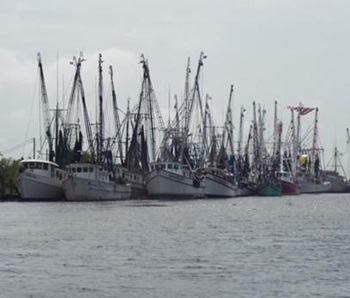 The U.S. Army Corps of Engineers says the agency hasn’t dredged nine Georgia waterways in decades – and there hasn’t been much impact as a result. So they’re considering asking Congress to de-authorize them from federal maintenance. But Georgia seafood harvesters and others say that’s not true. They argue that there’s plenty of commercial activity on Georgia’s smaller coastal waterways to justify keeping them authorized for future dredging. Charlie Phillips of Townsend, in northern McIntosh County, owns two seafood harvesting businesses, Phillips Seafood and Sapelo Sea Farms. “It’s going to need to be dredged sooner or later,” he said, noting that some areas on the Sapelo River already are troublesome for some boats at low tide. more, >>CLICK TO READ<< 08:41
The U.S. Army Corps of Engineers says the agency hasn’t dredged nine Georgia waterways in decades – and there hasn’t been much impact as a result. So they’re considering asking Congress to de-authorize them from federal maintenance. But Georgia seafood harvesters and others say that’s not true. They argue that there’s plenty of commercial activity on Georgia’s smaller coastal waterways to justify keeping them authorized for future dredging. Charlie Phillips of Townsend, in northern McIntosh County, owns two seafood harvesting businesses, Phillips Seafood and Sapelo Sea Farms. “It’s going to need to be dredged sooner or later,” he said, noting that some areas on the Sapelo River already are troublesome for some boats at low tide. more, >>CLICK TO READ<< 08:41

An Optimist’s view: Death of the Chevron Deference
My name is David Goethel. I am a 55 year plus commercial fisherman, research biologist and former fishery manager. As author of Endangered Species/Chronicles of A new England Fisherman I discuss these topics and a lawsuit I filed in 2015 with the legal group Cause of Action over the legal concept known as Chevron Deference. Most people believe Congress writes laws, the Executive Branch carries out those laws and the Judicial Branch interprets and clarifies whether aspects of those laws are Constitutional and correctly applied. It turns out under a doctrine called “Chevron Deference” the regulatory bureaucracy can deem a law unclear or ambiguous and create any regulation the agency decides it needs to carry out its bureaucratic function. Until this past Friday, the courts gave deference to the regulators as the “recognized experts” even though no proof is required and no test for ambiguity is applied. The Supreme Court overturned Chevron Friday saying they had “placed a tombstone on its grave”. Fishermen, including me, had sued saying that unelected regulators should not have this vast power over our lives. more, >>CLICK TO READ<< 20:18
Graves, Wicker Urge NOAA to Catch Better Data for Fisheries Management
 U.S. Congressman Garret Graves and U.S. Senator Roger Wicker – along with U.S. Senate Commerce Committee Ranking Member Ted Cruz (Texas), U.S. House Natural Resources Committee Chair Bruce Westerman and 20 other bipartisan Members of Congress – urged the National Oceanic and Atmospheric Administration (NOAA) Assistant Administrator Janet Coit to modernize the data used by the National Marine Fisheries Service (NMFS) and bring better science to the table for fisheries management. “Historically, the federal government’s fisheries data management has been a failure. Their system overestimates what has been caught, which gives us less opportunity to fish. There are real solutions on the table to reverse this trend .“We know that there’s better and more precise fisheries management data being collected by the states than what the federal government can provide, and we want NMFS to use the best data and science,” said Congressman Graves. “Our children and grandchildren deserve sound science and sustainable fisheries management. more, >>CLICK TO READ<< 09:23
U.S. Congressman Garret Graves and U.S. Senator Roger Wicker – along with U.S. Senate Commerce Committee Ranking Member Ted Cruz (Texas), U.S. House Natural Resources Committee Chair Bruce Westerman and 20 other bipartisan Members of Congress – urged the National Oceanic and Atmospheric Administration (NOAA) Assistant Administrator Janet Coit to modernize the data used by the National Marine Fisheries Service (NMFS) and bring better science to the table for fisheries management. “Historically, the federal government’s fisheries data management has been a failure. Their system overestimates what has been caught, which gives us less opportunity to fish. There are real solutions on the table to reverse this trend .“We know that there’s better and more precise fisheries management data being collected by the states than what the federal government can provide, and we want NMFS to use the best data and science,” said Congressman Graves. “Our children and grandchildren deserve sound science and sustainable fisheries management. more, >>CLICK TO READ<< 09:23
Something Is Starting to Smell Fishy About the Global Seafood Supply Chain
 The past half year has seen a steady stream of disturbing reports about serious human rights abuses tied to industrial fishing. The story about conditions at the shrimp plant in India come against a broader backdrop. The same week that the whistleblower documents were published, the Corporate Accountability Lab, which is an advocacy group of lawyers and researchers, released a report detailing severe cases of captive and forced labor as well as environmental concerns often tied to wastewater at a variety of other shrimp plants in India. It’s worth remembering the history here. Labor abuse tied to seafood is not a new problem. And yet, here we are again: the seafood problems previously highlighted in Thailand are now being widely revealed in China and India. more, >>click to read<< 08:05
The past half year has seen a steady stream of disturbing reports about serious human rights abuses tied to industrial fishing. The story about conditions at the shrimp plant in India come against a broader backdrop. The same week that the whistleblower documents were published, the Corporate Accountability Lab, which is an advocacy group of lawyers and researchers, released a report detailing severe cases of captive and forced labor as well as environmental concerns often tied to wastewater at a variety of other shrimp plants in India. It’s worth remembering the history here. Labor abuse tied to seafood is not a new problem. And yet, here we are again: the seafood problems previously highlighted in Thailand are now being widely revealed in China and India. more, >>click to read<< 08:05
Cape May fishermen at center of major U.S. Supreme Court case
On Wednesday, the justices heard testimony in Loper Bright Enterprises v. Raimondo. The justices are deciding whether to uphold or overrule the four-decades old Chevron v. Natural Resources Defense Council decision. The justices heard three-and-a-half hours of oral argument this week. Multiple media outlets reported the justices asked questions indicating that the Chevron doctrine is unlikely to remain fully intact. The fishermen are challenging the National Marine Fisheries Service for requiring the herring industry to take on the cost of paying observers. Who is supporting the fisherman and why? The fishermen are represented by the Cause of Action Institute and New Civil Liberties Alliance. Groups such as the Cato Institute, Christian Employers Alliance, and members of Congress such as Sen. Ted Cruz and Speaker of the House, Mike Johnson, have filed briefs in support of the fishermen. more, >>click to read<< 12:15
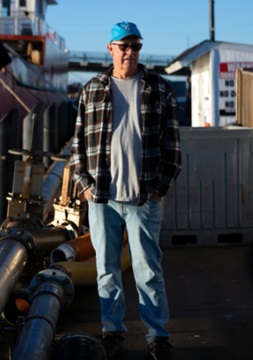
A Small Fish and an Uncollected Fee Add Up to Big-Government Challenge at the Supreme Court
The case could undercut the power of federal regulators on major issues including air pollution and securities fraud. It also exemplifies the way many of the high court’s biggest fights are born these days — driven less by the practical aims of the litigants than by the ideological vision of the interest groups behind the suits. The fight concerns a federal requirement that some herring boats host government-approved observers aboard their vessels and cover an estimated $710 daily cost. The fisherman say that would be an onerous burden on their family-owned businesses — so onerous they are suing even though the fee is on hold and might never kick in. “We have not had to pay. We’re just nervous about this hanging over our head,” said Bill Bright in an interview in Cape May, New Jersey, where he runs his two-vessel fishing business. “So we feel that we need to solve this problem now.” Photos, >>click to read<< 11:14

Experts: Americans are eating fish processed by slaves
North Korean and Uyghur slaves are processing seafood for Chinese companies that export to the United States, experts and lawmakers told Congress on Tuesday, with customs officials struggling to identify and keep the tainted fish off Americans’ plates. The experts told the Congressional-Executive Commission on China that even U.S. military caterers were buying fish caught or processed by laborers trapped in jobs from which they cannot escape and who are seldom paid a living wage. Chris Smith, a Republican from New Jersey and the chair of the committee, said there was ample evidence China-based companies are “exploiting the forced labor of Uyghurs and North Koreans” to undercut international competitors, including in the United States. “From fish sticks to calamari, these products infiltrate the supply chains of major restaurants, wholesalers, and even find their way into the meals served in American schools and military bases,” he said, adding that it violated laws like the Uyghur Forced Labor Prevention Act. >>click to read<< 16:03
Kelly Bullis: Fishermen might hurt the IRS
 Now here is a whopper of a fishing story! The current session of the U.S. Supreme Court has an interesting case on the docket. If they rule in favor of the plaintiffs, it could end up changing a long-standing rule from a prior Supreme Court ruling of almost 40 years ago which underpins the ability of the IRS to do its job. The case is about regulation of fishing boats. And the old Supreme Court doctrine at risk is called the “Chevron Deference Doctrine.” The “Chevron Deference Doctrine” was a coined name that came from a famous landmark case “Chevron USA Inc vs. Natural Resources Defense Council Inc” back in 1984. The Supreme Court set forth a legal test as to when a court should defer to an agency’s answer or interpretation, holding that such judicial deference is appropriate where the agency’s answer was not unreasonable, so long as Congress had not spoken directly to the precise issue at question. >>click to read<< 13:38
Now here is a whopper of a fishing story! The current session of the U.S. Supreme Court has an interesting case on the docket. If they rule in favor of the plaintiffs, it could end up changing a long-standing rule from a prior Supreme Court ruling of almost 40 years ago which underpins the ability of the IRS to do its job. The case is about regulation of fishing boats. And the old Supreme Court doctrine at risk is called the “Chevron Deference Doctrine.” The “Chevron Deference Doctrine” was a coined name that came from a famous landmark case “Chevron USA Inc vs. Natural Resources Defense Council Inc” back in 1984. The Supreme Court set forth a legal test as to when a court should defer to an agency’s answer or interpretation, holding that such judicial deference is appropriate where the agency’s answer was not unreasonable, so long as Congress had not spoken directly to the precise issue at question. >>click to read<< 13:38
Louisiana shrimpers, lawmakers unite to protect domestic fisheries as season begins
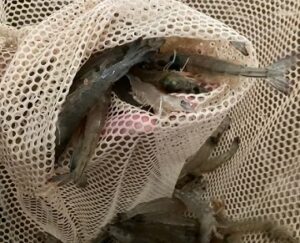 The Louisiana Shrimp Association joined in a letter that said the influx of imported shrimp has proven especially problematic for domestic harvesters. Nineteen other allied organizations and companies, representing more than 4,000 seafood businesses of the U.S. Gulf of Mexico and South Atlantic region also signed onto the letter. “Despite rising costs for fuel and labor, the price of Gulf shrimp, for example, has not increased since 1980. For the past 40 years, the average dockside price of Gulf shrimp has ranged from $1.50-$2.00 per 2 pounds,” the letter said. The Louisiana Legislature on June 6 presented House Concurrent Resolution 113 to the Secretary of State. The resolution urges Congress to ban the import of shrimp and crawfish from outside the United States. >click to read< 11:24
The Louisiana Shrimp Association joined in a letter that said the influx of imported shrimp has proven especially problematic for domestic harvesters. Nineteen other allied organizations and companies, representing more than 4,000 seafood businesses of the U.S. Gulf of Mexico and South Atlantic region also signed onto the letter. “Despite rising costs for fuel and labor, the price of Gulf shrimp, for example, has not increased since 1980. For the past 40 years, the average dockside price of Gulf shrimp has ranged from $1.50-$2.00 per 2 pounds,” the letter said. The Louisiana Legislature on June 6 presented House Concurrent Resolution 113 to the Secretary of State. The resolution urges Congress to ban the import of shrimp and crawfish from outside the United States. >click to read< 11:24

Fishermen File Lawsuit Against Biden Administration, Claiming Regulations are Threatening Their Business
Two fishermen have filed a lawsuit against the Biden administration, claiming that Congress and unelected councils are unconstitutionally regulating and overseeing fisheries. Commercial fishermen George Arnesen of Louisiana and Ryan Bradley of Mississippi argue that the regulatory authority has been placed in the hands of an “unconstitutional regime” that is detrimental to local fishermen. They claim that these regulations make them “vulnerable to capture by narrow private interests.”The lawsuit specifically cites the 1976 Magnuson-Stevens Fishery Conservation and Management Act as the primary law governing marine fisheries management in U.S. federal waters. The plaintiffs argue that Congress has converted federal waters into “Constitution-free zones,” in violation of the Constitution. >click to read< 09:52

Offshore wind foes in New Jersey gathering force legally and politically
Opponents of offshore wind energy projects in New Jersey are gathering force legally and politically as they seek to snuff out the nascent industry. Within the last week, three residents groups sued New Jersey over a key approval of its first planned wind farm; the research arm of Congress agreed to investigate the impact of offshore wind on the environment and other areas; and lawmakers in two counties most heavily impacted by wind farms stepped up their efforts to block the projects. Save Long Beach Island, Defend Brigantine Beach, and Protect Our Coast NJ filed an appeal Friday in state Superior Court of New Jersey’s determination that the Ocean Wind I project is consistent with state coastal management rules. >click to read and comment< 08:55
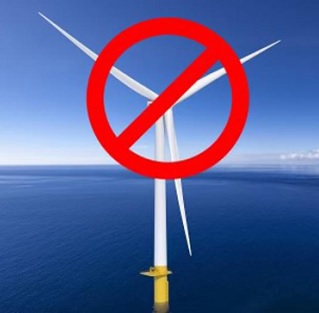
Resistance to Offshore Wind Is Growing on US Coasts
A growing chorus of interest groups is calling for a pause in offshore wind activities to allow further assessment of the sector’s impacts on the marine ecosystem. Fishing groups and local residents have filed five lawsuits against proposed or under-construction wind projects along the Atlantic seaboard. A leading body for the U.S. Pacific fishing industry is urging the federal government to call off its proposed auction for offshore wind off the Oregon coast. And the United States’ largest lobbying group for Native Americans recently called for a halt to all offshore wind scoping and permitting. Wind energy is a key component of the Biden Administration’s climate agenda. >click to read< 08:10

Fate of NJ Fishermen in the Hands of Supreme Court
New Jersey herring fishermen asked the Supreme Court in a final brief to rein in regulators that rely on judicial deference to circumvent the will of Congress. The fishermen are challenging the lawfulness of a regulation that could force them to hand over 20 percent of their pay to third-party at-sea monitors they must carry on their boats—a mandate that Congress never approved by statute and did not give the National Marine Fisheries Service (NMFS) the authority to require by regulation. The U.S. Solicitor General recently filed a brief with the Court urging the justices to ignore the checks and balances of the U.S. Constitution in order to preserve the controversial doctrine of Chevrondeference. >click to read the press release< 15:22
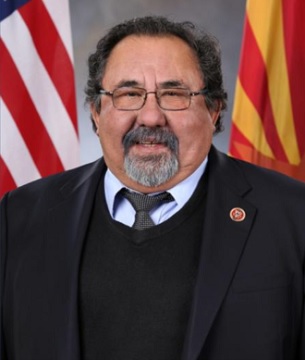
Maine delegation to fight bill that would repeal ‘pause’ in lobstering regulations
When Congress passed a law in December that included a six-year reprieve from new federal regulations for the lobster industry, the fishery heaved a sigh of relief. But if a new bill introduced this week in the House of Representatives is approved, that relief would be short-lived. Maine’s congressional delegation says they are committed to ensuring that doesn’t happen. On Monday, Rep. Raul Grijalva, D-Arizona, introduced The Restoring Effective Science-based Conservation Under Environmental Laws Protecting Whales Act, or the RESCUE Whales Act. If passed, the bill would repeal the protections for the lobster fishery that were included in the 2022 federal omnibus spending law. The omnibus poses an “existential threat” to the North Atlantic right whale, undermines the science-based protections of both the Endangered Species Act and the Marine Mammal Protection Act, and ignores possible solutions like “ropeless gear,” Grijalva said in a statement. >click to read< 11:31
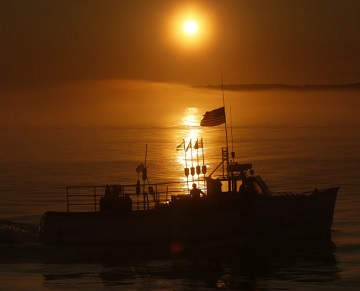
Biden bureaucrats and woke environmentalists are regulating Maine lobstermen out of existence
Have you been shopping recently and suffered from severe sticker shock on household staples? Sure, inflation and supply chain issues are contributors to soaring costs, but something deeper and more long-term is also going on: regulators and radical environmentalists are working in tandem to turn staple consumer products into luxury goods beyond the reach of most Americans. The flare-up over banning natural gas-powered appliances is a great example of the kind of regulation some would like to impose on ordinary Americans. But similar radical regulatory moves with devastating effects for consumers are already happening across several industries. In Maine, for example, the families who have harvested the iconic seafood commodity from American waters for centuries may soon find themselves regulated out of existence. >click to read< 07:33
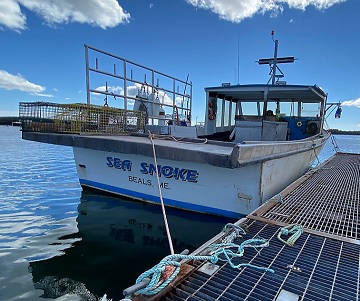
Maine lobster industry must accept that ‘big changes are coming’ despite delay in federal rules, commissioner says
“The work now is critical,” DMR Commissioner Patrick Keliher told the Lobster Advisory Council Wednesday. “The buy-in is critical. The data we’re going to be collecting over the next four years is critical. We can’t have infighting. We have to accept big changes are coming. ”Those changes could include additional regulations to make ropes weaker, a move toward ropeless lobster traps and additional restrictions on fishing grounds. Between now and then, the industry needs to report its harvest to federal officials, participate in a vessel tracking program and find ways to help monitor where endangered whales are migrating, Keliher said. >click to read< 08:49

With bill’s passage, lobster industry welcomes 6-year break from new regulations
Hours before a stopgap spending measure was set to expire, Congress voted to pass the $1.7 trillion omnibus package to fund the government through September 2023. The package passed in the Senate Thursday afternoon with a large bipartisan majority, 68-29. Maine’s delegation was able to include a rider in the package that protects lobstermen for six years from rules that the industry says would decimate the state’s iconic fishery and coastal economy. The provision essentially reverses a federal court decision this summer on new lobstering regulations by preventing them from taking effect until Dec. 31, 2028. >click to read< 09:14

Maine Pols Brag About Stopping Unscientific Lobster Regs in Monsterous $1.7T Omnibus Bill
Maine’s Congressional Delegation and Gov. Janet Mills gave themselves a hearty pat on the back Tuesday for convincing Members of Congress to temporarily halt an unscientific regulatory crusade on the Maine lobstering industry. Maine’s Congressional Delegation has in recent years also voted to massively increase NOAA’s funding, meaning Maine lawmakers helped fund the very crusade they’re now bragging about halting, temporarily. All told, NOAA’s funding has increased by more than $6 billion since President Joe Biden took office, all with the support of Maine’s elected officials. >click to read< 11:09

Maine Lobstermen’s Association Statement on Omnibus Appropriations Bill
12/20/2022 -Today, U.S. Senators Susan Collins and Angus King, Representatives Chellie Pingree and Jared Golden, and Governor Janet Mills announced that they were successful in securing a regulatory pause for Maine’s lobster industry in the Omnibus funding package that is expected to pass the Senate and House this week. Following is a statement from Patrice McCarron, Executive Director of the Maine Lobstermen’s Association: “The Maine Lobstermen’s Association (MLA) is encouraged that Congress recognizes that the federal rulemaking process intended to protect right whales is broken. Please >click to read the statement< The comment section is open.16:09
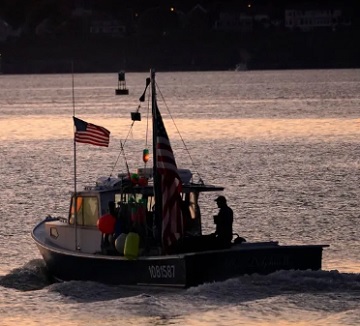
Maine delegation adds 6-year pause on lobster rules to federal spending bill
Maine’s congressional delegation has inserted a six-year pause on new regulations intended to protect endangered right whales into a key federal spending package as it seeks to protect a lobster industry that says it is under siege. The provision will help a vital Maine industry that had been hit with too many regulations despite its lack of threat to the endangered whales, Sens. Susan Collins and Angus King, Reps. Chellie Pingree and Jared Golden and Gov. Janet Mills said in a statement. The late-breaking move comes just days before Congress is expected to approve a massive $1.7 trillion spending bill that would fund the government through next fall. >click to read< 13:34
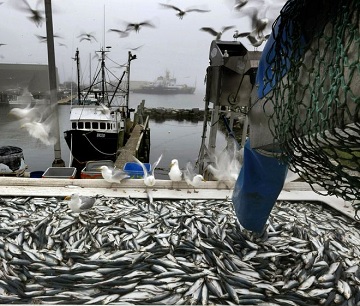
Forcing fishermen to pay for the privilege of being monitored
Imagine you live somewhere in small-town America where residents routinely exceed the posted speed limits. To address this problem, the town council votes to require a police officer to ride along with each member of the community every time they venture out in an automobile. You might think something like that could never happen. Yet that is precisely the position into which the Department of Commerce has placed the nation’s deep-sea fishermen. For more than 30 years, the Magnuson-Stevens Act has authorized the Commerce Department’s National Oceanic and Atmospheric Administration to require commercial fishing boats to carry observers with them to monitor their adherence to federal fishing regulations. When NOAA ran out of the money it needed to keep this program going to the extent it deemed necessary in the U.S. Atlantic Coast herring fisheries, the agency decided without congressional authorization to shift the responsibility of paying for these third-party observers to the fishermen themselves. >click to read< 14:54
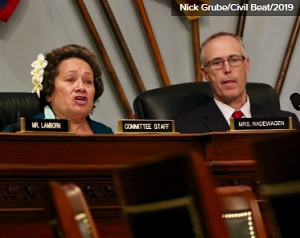
Sustaining America’s Fisheries for the Future Act – Partisan Politics Threaten to Sink Reform of Federal Fisheries Law
A divided Congress and the unexpected death of an Alaska congressman appear to have derailed federal legislation meant to improve oversight and management of U.S. fisheries, especially in the face of climate change. The House Natural Resources Committee passed a Democratic-sponsored bill last week to reauthorize the Magnuson-Stevens Fishery Conservation and Management Act for the first time since 2006. While it’s possible the bill will receive a vote on the House floor before the end of the year, its chances of being taken up in the Senate, much less receiving the 60 votes necessary to break a filibuster, is unlikely — at least in this Congress. >click to read< 11:42
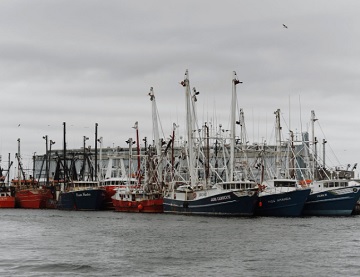
DOJ Digs Into “Competition Concerns” in New England Fishing Industry
The U.S. Department of Justice has begun looking at possible antitrust issues in the New England fishing industry, amid growing concern about consolidation and market dominance by private equity investors. One such firm is Blue Harvest Fisheries, which operates out of New Bedford, Massachusetts, and is the largest holder of permits to catch groundfish such as pollock, haddock and ocean perch. The investigation traced the company’s ownership to a billionaire Dutch family via a private equity firm. Over the past seven years, records show, the company has purchased the rights to catch 12% of groundfish in the region, approaching the antitrust cap of 15.5%. It further boosts its market share by leasing fishing rights from other permit owners. >click to read< 07:50

“Trust the science,” say the media – Scientific ‘integrity’
Polls show that fewer Americans do. There’s good reason for that. Environmental activists want to limit commercial fishing. They want Congress to pass what they call the “Ocean-Based Climate Solutions Act.” It claims climate change is the “greatest threat to America’s national security” and offers a dubious solution: close more of the ocean to commercial fishing. The administration’s deputy director of Climate, Jane Lubchenco, told Congress that a scientific paper concludes that closing more of the ocean can actually increase catches of fish. Really? That doesn’t seem logical. It isn’t. The paper was retracted. One scientist called its logic “biologically impossible.” Also, Lubchenco’s didn’t tell Congress that the paper was written by her brother-in-law! And edited by her! >click to read< 09:00

Maine lobster industry may receive nearly $14 million in federal aid
U.S. Reps. Jared Golden and Chellie Pingree, both Democrats from Maine, helped secure the funding and pledged to keep advocating for the fishery. In a statement, Golden called the regulations misguided, indefensible and economically damaging. “NOAA has been unable to prove that these regulations will work, but lobstermen are still being forced to pick up the tab,” he said. “It’s just wrong.” Virginia Olsen, director of the Maine Lobstering Union, said the money will help keep fishermen in business as they “work to right the wrongs” of the new regulations. Patrice McCarron, executive director of the Maine Lobstermen’s Association, agreed. >click to read< 19:58






